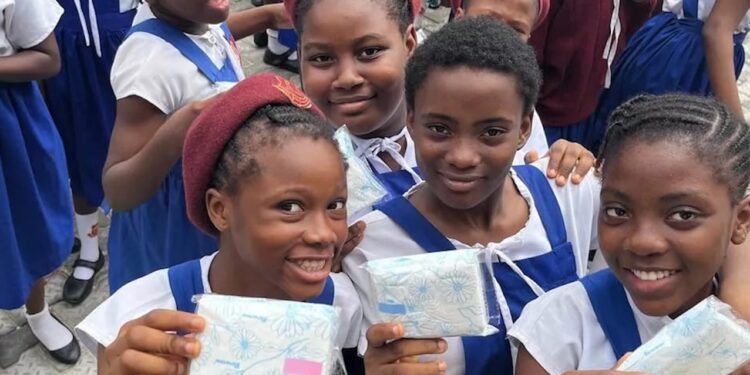By Miriam Omede
I was forced to bleed into a sanitary pad for more than the advised 8 hours because I simply couldn’t afford to change to a fresh one. I silently suffered the discomfort and humiliation that the red stains on my skirt would cause me. I am not alone. 37 million girls in Nigeria are forced to ration their limited supply of pads EVERY MONTH to make them last longer, thereby putting themselves at great risk of developing deadly infections including UTIs!
The wealthy may not think twice about stuff like this, but average Nigerians like me know how much 1200 Naira means for a young schoolgirl. When you have other expenses like food and education to meet, health always takes a backseat.
I am running an online petition appealing to Always, the global sanitary pad giant, to subsidize products for school girls, starting with Kogi, my hometown. Why Always? On their website, they have stated that they “care about women and girls” and are committed to ending period poverty. They write, “Despite the ongoing challenges, Always wants to show girls that they’re #SupportedAlways and help #EndPeriodPoverty so that periods don’t hold young people back.”
If Always can donate more than 50 million pads since they started their #EndPeriodPoverty campaign in the US, then why not in Nigeria? If this global brand with its heart in the right place subsidises pads for school girls in Kogi, then every vulnerable girl will feel protected, and her confidence, dignity and education will be boosted.
Menstruation is a biological feature of every woman and no one should suffer health risks because of their sex. With Nigeria ranking 103 out of 121 in the 2022 Global Hunger Index, women in low-income states are the major victims of period poverty.
If this subsidy is not effected, many girls would continue to be exposed to the risk of infections and diseases which would in the long run affect their academics, self-esteem and future.
Join over 400 Nigerians who have signed this petition and lend your voice towards creating a safe space for the girl child in Nigeria.
_______
Miriam Omede is a Nguvu Collective Change leader based in Nigeria


































